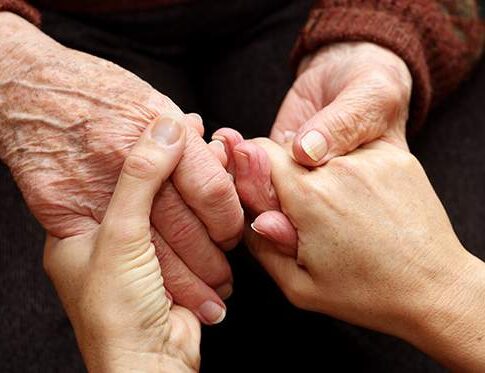The holidays – and the many visitors and activities that come with them – have come and gone. And for many older adults, the looming question is, “Now what?” The post-holiday season can be especially challenging for older adults who are already dealing with isolation. The sudden and dramatic change in their environment when activities wane and loved ones leave after the holidays can have a profound impact on their mental health.
A very real problem for the aging population
As the population of adults 65 and older continues to explode, we’re learning more about the impacts of isolation. As they age, many older adults are less mobile, have less contact with their social circles and are less likely to connect with family on a regular basis. The impact? Prolonged isolation. According to AARP, isolation is about more than feelings of loneliness in seniors who may live independently. Rather, it’s the result of feeling detached – physically or psychologically – or being disconnected from support groups of family, friends and community. Isolation is becoming so common that the AARP Foundation recently launched a new website – Connect2Affect – dedicated to helping older adults and their loved ones minimize the incidence and impact of isolation.
The Connect2Affect website identifies five primary causes of isolation:
- Transportation challenges, particularly lack of accessible and affordable transportation options, leading older adults to become housebound
- Poor health and well-being, such as untreated hearing loss, lack of mobility or poor mental health
- Life transitions, role loss or change, such as loss of a partner or friends or leaving the workforce
- Societal barriers, such as ageism and lack of opportunities for older adults to engage and contribute
- Lack of access, often caused by poverty, rural living or inequality for minority groups
Recent stories in The New York Times and Forbes explored the correlation between isolation and a person’s physical and mental health. AARP suggests the health risks of prolonged isolation are equivalent to smoking 15 cigarettes per day. One of the most significant areas of impact can be on the isolated individual’s mental health.
A common health issue that isn’t a “normal” part of aging
Changes in an older adult’s mental health – specifically depression – can be difficult to recognize. Why? Because the individuals themselves often don’t talk about how they’re feeling. And their loved ones often dismiss the symptoms of depression as a “normal” part of growing older, or they mistake the symptoms as signs of chronic health conditions, such as dementia.
While the aging process – and many of the health issues and medications that come with it – can trigger mental health issues, depression in older adults is not normal. According to the National Alliance on Mental Illness (NAMI), untreated depression in older adults can increase risk of illness and contribute to cognitive decline. NAMI notes that symptoms of depression in older adults can differ from other populations, and may include:
- Memory problems
- Confusion
- Difficulty concentrating or making decisions
- Delusions
- Hallucinations
- Persistent and vague complaints, often of pain
- Feelings of worthlessness, helplessness or extreme guilt
- Social withdrawal and/or loss of interest or pleasure in activities
- Irritability
- Unexplained help-seeking behaviors
- Demanding behaviors
- Lack of energy
- Disturbed sleep or inability to sleep
- Slow or lethargic movements
- Lack of attention to personal care or hygiene
- Loss of appetite
- Weight loss or gain
Prolonged feelings of isolation, the post-holiday transition and even the change in seasons can intensify these symptoms.
Solutions for older adults – and the people who love them
The most important step for decreasing isolation and improving mental health for older adults is recognizing the issues. A variety of screening tools can help validate concerns:
- This AARP assessment tool can help individuals understand personal occurrence of isolation, as well as how significant a problem it is
- This confidential screening tool from Mental Health America can help determine the likelihood an individual is suffering from depression, based on specific symptoms
Once isolation is identified, there are many proactive steps that can help minimize its severity and impact. And a depression diagnosis can help enable the treatment older adults need to overcome their symptoms. Some ideas for combatting both issues include:
- Plan regular visits with or social outings for older adults
- Include older adults in family activities
- Identify resources for transportation, companionship and/or assistance with daily needs
- Join a support group, senior center/program or class
- Renew focus on a hobby or cherished activity
- Reconnect with old friends
- Participate in physical activities such as walking, meditation, Tai Chi or Yoga
- Spend time outdoors, when weather permits
- Invest in aromatherapy or massage
- Get adequate sleep
- Enlist the help of a professional via therapy or ongoing treatment
The companionship and support older adults need, from FirstLight
FirstLight’s Companion Care Services can provide the presence and companionship older adults need to stay connected and engaged. Whether it’s regular visits for conversation and company, a partner for errands and transportation or help with meals, housekeeping or laundry, FirstLight can be there. Find a location near you today.
